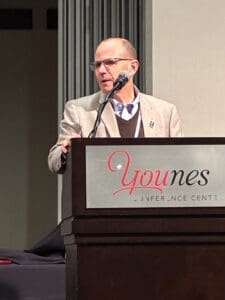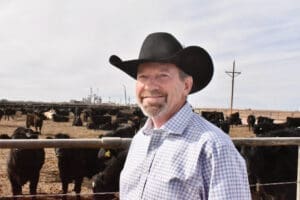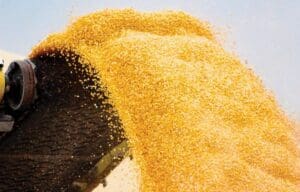By Will Verboven, Contributing Editor
One is reminded of the power of political correctness and how far its nefarious tentacles have reached into the mindset of Canadian bureaucrats. That power was dramatically displayed by Dr. Penny Greenwood, a functionary with the Canadian Food Inspection Agency (CFIA). At a Canadian Cattlemen’s Association (CCA) Health Committee meeting she was speaking on the newly amended Canadian livestock transportation regulations. Those new regulations were criticized by the CCA as “destined to fail.”
Unmoved by that forewarning, Dr. Greenwood stated “… if that [amended regulation] is not acceptable to the cattle sector, then that is very unfortunate.” She further indicated that it is now the law, so tough luck and get used to it.
Now, such a haughty attitude by a bureaucrat is nothing new. That’s because in Canada, we give bureaucrats broad regulatory powers, and we have no recourse when they abuse that power. Sure, we elect politicians to change unfair and discriminatory rules and legislation, but it takes a determined and powerful government minister to overcome bureaucratic intransigence, as history has shown.
But it wasn’t bureaucratic arrogance over new livestock transportation regulations that were the most galling to the livestock industry – it was the comments on who motivated their decisions on the arbitrary changes. Dr. Greenwood stated that they listened to animal rights advocacy groups in order to obtain their social license, because of the political impact.
Since when did that step become part of the scientific process in creating federal regulations? Is that now a standard application assessment when governments plan regulation changes?
She added that vegans also vote and politicians are concerned with that. So now, professional bureaucrats have begun to include political considerations into what should be a science-based process. Aren’t political considerations decided by actual elected politicians?
What were these Canadian bureaucrats thinking? Vegetarians and animal rights groups are dedicated to the termination of animal agriculture. Their unequivocal opposition to any food animal regulation would be obvious. If such absurd considerations are now the norm, can we expect that the livestock industry will be consulted by federal bureaucrats on any rules regarding the inspection, health and transportation of vegetables? After all, isn’t the political impact of such changes to livestock industry voters to be considered. Shouldn’t social license be obtained from meat eaters as to the health and movement of those same vegetables? Alas, as we know the first job of political correctness is to hide both hypocrisy and common sense.
The process to amend the livestock regulations reached new heights of ludicrousness, according to the CFIA’s own press release. It notes that over 51,000 comments from 11,000 respondents were received from the public, animal advocacy groups, researchers, international organizations, law groups and others – which now includes vegetarians. I would suggest that most of those folks have little understanding or any connection to Canadian livestock transportation and probably have biased notions based more on an imaginary human empathy reaction than actual reality.
The Canadian Cattlemen’s Association is lobbying the federal government to reconsider the changes, pointing out that research is presently being carried out to put more scientific evidence behind livestock transport protocols. One suspects the changes have been rushed forward in order to preempt any researched scientific evidence that might challenge the changes that have been forced on the industry by the CFIA. Experience shows that once regulations are legally established, no matter their dubious rationale, they are most difficult to reverse. Senior Canadian bureaucrats understand their power and they know how to use it.
What’s enlightening about livestock transportation in North America is that up to 98 percent of all livestock that is transported arrives in good health at their destination. That’s a pretty good record for any transportation activity. But that’s not good enough for busybody bureaucrats. That has seen the CFIA create burdensome solutions to problems they invented. As is usual with government regulators, little consideration is given to the economics of their duplicitous decisions.
The new regulations will increase costs, especially for primary and feedlot producers, who always pay the price in the end. Considering what seems like a campaign to overregulate animal agriculture, one suspects many of our government regulators have a hidden anti-meat agenda. When the main excuse for new, onerous livestock transport regulations is political impact and social license from anti-animal agriculture groups, it’s rather easy to suspect such a hidden agenda.
American readers might ponder, what does this matter to the U.S. livestock industry? Well, consider it a precursor to what will probably happen to American livestock transportation regulations. The federal governments of Canada and the United States at the senior bureaucratic level are well connected to each other due to the highly integrated nature of our economies and social structure. That also means that those same bureaucrats are lobbied by the same anti-animal agriculture extremist groups such as PETA, Sierra Club, World Wildlife Fund, etc. Most Americans are unaware that U.S. lobbying groups spend millions of dollars in Canada, fomenting various causes. They do so because our liberal government is a sucker for giving in to progressive causes, and any victories up here are used as precedent setting for those same causes in the United States.
My point is that if those groups were successful in crippling livestock movement in Canada, they will surely be pressuring American bureaucrats responsible for livestock transportation regulations. Those U.S. bureaucrats will be consulting with their Canadian counterparts – and, well, you know how the process works. American livestock producer organizations had better get their lobbying troops in motion before it’s too late.
The anti-animal agriculture lobbying agenda is to make commercial livestock transportation so costly and entangled with red tape that it will affect the viability of animal agriculture. They have found a way to carry out their devious goals in Canada. Surely the United States is their real target.
E-mail comments to willverboven@hotmail.com





